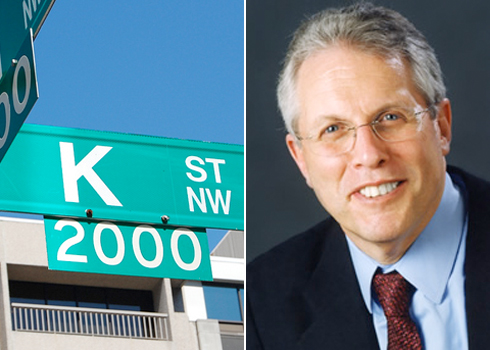Howard Marlowe thinks disclosure is important. Technically, the longtime lobbyist will tell you, he didn’t even have to register on behalf of the American League of Lobbyists (ALL), since his position as president is on a volunteer basis. But register he did, on behalf of his own lobbying firm Marlowe & Company, a few months after taking over ALL in January.
Marlowe says he decided to register because starting this summer, he will be actually lobbying for changes to lobbying laws, with an aim to “improve the effectiveness” of disclosure requirements. He says some of the suggestions of watchdog groups like the Sunlight Foundation just wouldn’t work.
“In some cases what they’re proposing is just unrealistic, even if it’s well intended,” Marlowe told TPM in a phone interview. “Generally speaking, people who want every lobbyist to sign in when they go into an office, or there’s another proposal out there that lobbyists should report every contact they have with a member… it’s just not realistic.”
Marlowe says it’s difficult for lobbyists to track exactly what percentage of their time is actually spent lobbying — an important question because according to the letter of the law, registration isn’t required unless more than 20 percent of an individual’s time is spent lobbying.
“Most of us, believe it or not, do not spend 20 percent or more of our time lobbying,” Marlowe said. “If you try to tighten up on that, there’s more disclosure, which we think is good,” he said. “Members of Congress, some will love it and some will be uncomfortable, but we don’t know until we get to talk to them.”
“I’m not saying that we want to have more regulation just for the sake of saying that’s better, because I’m not sure that’s necessarily the case,” he continued. “But the issues of definitions and thresholds are important, and that’s something we’re taking a look at.”
Another important issue on his plate – getting rid of earmark bans. He says such bans “have in essence restricted the First Amendment rights of people to petition their members of Congress.” He says outlawing earmarks won’t stop lobbyists from pursuing their clients’ interests – they’ll merely find other ways to do it.
As for the Obama administration’s publicly stated position of keeping a safe distance from lobbyists — Marlowe’s not buying it. He points to reports of administration officials hosting meetings with lobbyists at a Caribou Coffee across the street from the White House to avoid the requirements of a visitors’ log. He also says banning lobbyists from serving in the administration, has simply led lobbyists to avoid registering.
“What the administration is doing is hypocritical, and that’s only one more example of the hypocrisy of it — you know, don’t come here but come across the street to Caribou Coffee. It doesn’t give people anymore confidence in our government,” Marlowe said.
He says that due to the administration’s rules banning lobbyists from serving in the administration, there are roughly 3,000 fewer registered lobbyists than there were just a couple years ago. “It isn’t because our profession is decreasing in number.”
Late update: The Sunlight Foundation’s government affairs consultant Lisa Rosenberg gave us this statement in response to Marlowe’s comments:
Currently, the Lobbying Registration Act requires that lobbyists report whether they have met with the House, the Senate or the executive branch, and that’s fairly meaningless disclosure.
To know where the real pressure points are in Washington, and who holds the power, the public needs to know specifically which offices a lobbyist is meeting with. Only then can the public connect the dots as to whether contributions plus lobbying pressure equals results.
Saying that reporting the lobbyists’ contacts in “unrealistic” is, we think, code for ALL wanting to maintain the status quo, where the most important activities of lobbyists remain in the dark.






